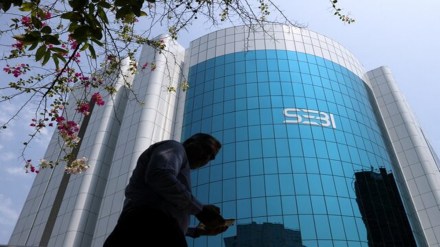The markets regulator has warned opinion trading enthusiasts that they are on their own when it comes to placing bets on these trading apps. This is because opinion trading does not fall under SEBI’s purview and thus there is no investor protection mechanism, explains Ananya Grover
What are opinion trading platforms?
Opinion trading platforms or apps allow users to speculate on the outcome of a diverse range of events taking place, with most of the bets related to sports, politics, YouTube statistics, cryptocurrency, and weather. The user places binary bets on these platforms on the probability of an underlying event taking place. For example: the yes/no outcome of Novak Djokovic winning the Grand Slam in 2025 has 12,694 active traders on one such app, Probo. If the participant’s predictions are correct, he makes money, and in case the prediction goes wrong he loses it.
What are SEBI’s concerns?
The Securities and Exchange Board of India (SEBI) on Tuesday noted that in some cases, the design of these platforms resemble an investment platform as they use terminologies such as profits, stop loss, trading, etc., terms closely associated with trades in securities. It clarified that opinion trading does not fall within its regulatory purview as securities are not traded on it. “Investors/participants should be aware that no investor protection mechanism under securities market purview shall be available for such investment/ participation,” it said. Moreover, any trading on such platforms, if the opinion traded qualifies as securities, is illegal and such platforms are liable to face action for violation in that case.
Is there a need for regulation in India?
In February, New Indian Consumer Initiative (NICI) wrote to the ministries of consumer affairs, information & broadcasting, and finance, besides SEBI, and the Advertising Standards Council of India, urging for a ban on opinion trading platforms in India. Since there’s no direct regulator for the sector, legal experts have asked for a framework to distinguish between skill-based and chance-based prediction. In 2023, the government had amended the Information Technology Rules, 2021 to regulate online gaming platforms. However, there are still some grey areas in the law when it comes to opinion trading platforms.
Are they legal?
While gambling on outcomes with money around real-world events violate Rule 4A(3) of the Information Technology (Intermediary Guidelines and Digital Media Ethics Code) Rules, 2021, games of skill are legal and are allowed under the Public Gambling Act, 1867, several state legislations, and also by the Supreme Court. Last month, however, the apex court had reinstated an appellant’s petition seeking a ban on opinion trading apps. The Supreme Court bench criticised the Gujarat High Court for dismissing the Public Interest Litigation on the grounds that a similar case was pending in the Bombay High Court, without examining the matter. The petitioner had argued that the gaming laws in Maharashtra and Gujarat differ and the issue of whether opinion trading apps constitute games of chance and betting needed to be heard separately. The petition was filed after observing users, including children, compulsively spending money on betting activities. YouTube videos also promote these apps as offering guaranteed profits with zero risk, which was viewed as promoting gambling. Investors and founders argue that there is a big element of skill that goes into making money on such platforms.
The counter-argument
A study by IIT Delhi and Probo last month said skill plays a bigger role than chance in opinion trading. It also shows that opinion trading shares three characteristics with games of skill — consistency of performance, a skill gradient as some players are better than others, and a learning effect that makes players get better over time.
The business of opinion trading
These platforms, most of which are available on Apple’s app store and Google Play, have received Rs 4,200 crore-plus in funding so far from over 35 investors which include Sequoia Capital (PeakXV), Accel Partners, Soma Capital, Elevation Capital and Y Combinator. As per industry estimates, these platforms have registered transaction volumes of over Rs 50,000 crore a year with a user base of more than 50 million people. Collective revenues for firms in the sector are projected to be over Rs 1,000 crore for the financial year 2024-25.
Are there similar apps elsewhere?
In the US, UK and Australia, these apps are classified as wagering platforms and there are laws to regulate them.
US-based Kalshi, from which India’s Probo draws its inspiration, is the pioneer. It is regulated by the Commodity Futures Trading Commission. A similar blockchain-based app Polymarket gained prominence in the 2024 US presidential elections. A French trader had made $49 million after betting that Donald Trump would romp to victory. However, its 26-year-old CEO’S office was raided by the FBI as the firm was not registered with CFTC. The regulators are probing whether its decentralised nature allowed American users to place bets.
